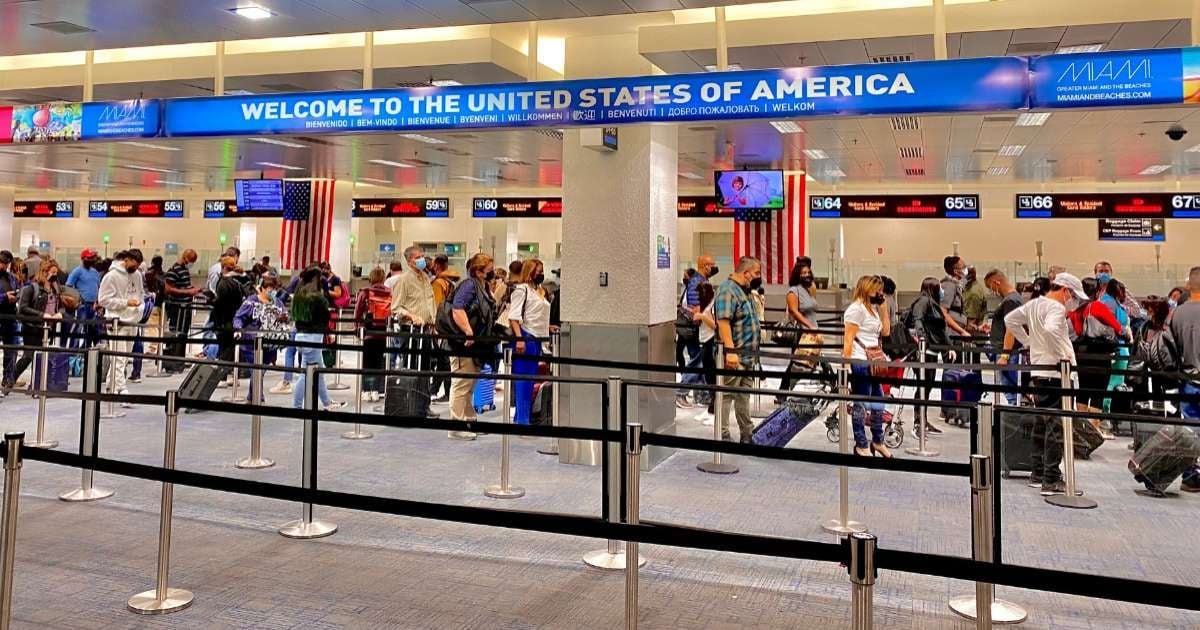The Trump administration is reportedly considering a travel ban that would prevent citizens from Cuba and other nations from entering the United States. This potential restriction would be part of an executive order titled "Protecting the Nation from Foreign Terrorist Entry into the United States," which President Donald Trump signed on January 20. The order aims to safeguard national security and public safety by addressing perceived threats.
According to unnamed officials cited by The New York Times, the administration is finalizing details for this expanded travel ban, which would be more comprehensive than those enacted during Trump's previous term. The proposed measure includes a "red list" of countries whose nationals could be barred from the U.S., with Cuba among the nations mentioned.
One official revealed that the suggested red list features countries whose citizens faced restrictions under earlier versions of Trump's travel ban. The initial list included Cuba, Iran, Libya, North Korea, Somalia, Sudan, Syria, Venezuela, and Yemen, with Afghanistan now tentatively added. "They would be categorically prohibited from entering the United States," the source told The New York Times.
In addition to the red list, the order proposes an "orange list" of countries with restricted but not entirely prohibited access. Nationals from these countries might receive specific visas for business travel but not for immigration or tourism, and their stay would be limited. A "yellow list" would cover nations whose citizens have 60 days to address identified deficiencies or face inclusion in one of the other two lists.
As reported by Reuters, the Department of State (DOS), Department of Justice (DOJ), and Department of Homeland Security (DHS) have been tasked with finalizing a list of countries subject to immigration restrictions by March 21. These departments must identify nations with inadequate investigative and vetting information.
Recently, Secretary of State Marco Rubio announced a new visa restriction policy targeting foreign government officials and others involved in facilitating illegal migration to the U.S. Rubio emphasized that this policy, aimed at protecting national borders and ensuring security, will apply to foreign officials, including those managing immigration and customs, airport and port authorities, and others who deliberately aid illegal immigration.
The visa restrictions will remain in place until foreign officials take effective measures and enforce immigration laws to prevent the illegal movement of migrants. This policy is enacted under section 212(a)(3)(C) of the Immigration and Nationality Act, which allows the Secretary of State to deem any foreign national inadmissible if their entry could have severe adverse effects on U.S. foreign policy.
Moreover, certain relatives of the involved officials might also be subject to these restrictions.
Implications of Potential Travel Ban on Cuban Nationals
Why is the Trump administration considering a travel ban on Cuban nationals?
The administration aims to enhance national security and public safety by addressing potential threats. This travel ban is part of a broader strategy to limit entry from countries deemed to have insufficient vetting and investigative processes.
What are the differences between the red, orange, and yellow lists?
The red list includes countries whose nationals could be completely banned from entering the U.S. The orange list involves nations with restricted access, allowing certain visas but not for immigration or tourism. The yellow list gives countries 60 days to correct issues or risk being moved to the other lists.
How does the visa restriction policy affect foreign officials?
The policy targets officials involved in facilitating illegal migration, applying to those managing immigration and customs, airport and port authorities, as well as other actors who knowingly support illegal immigration.
